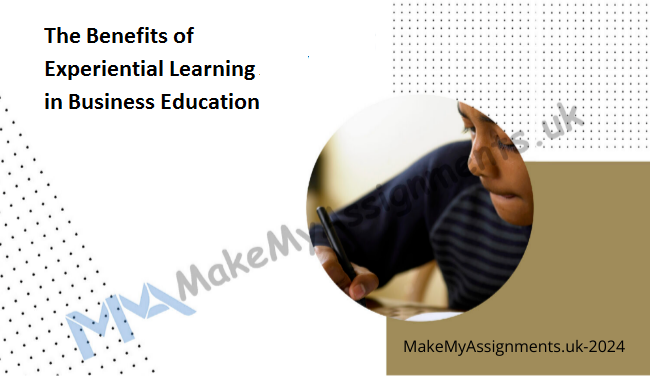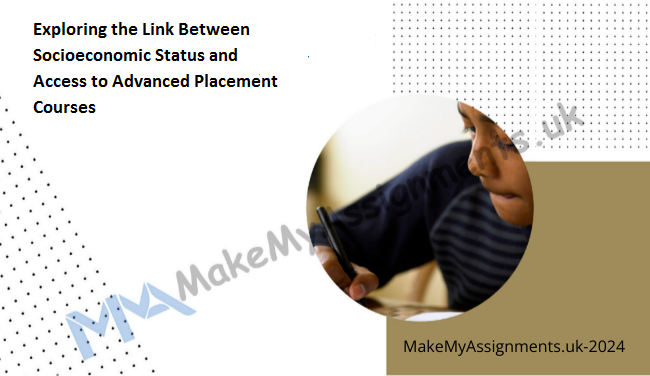In the dynamic landscape of business education, traditional classroom lectures are increasingly being complemented, if…

The Role of Educational Technology in Differentiated Instruction
In the dynamic landscape of education, educators face the challenge of catering to diverse learning needs within their classrooms. Differentiated instruction, a teaching approach that acknowledges and accommodates variations in students’ abilities, interests, and learning styles, has emerged as a powerful strategy to address this challenge. With the rapid advancement of educational technology, educators now have a myriad of tools and resources at their disposal to effectively implement differentiated instruction and foster inclusive learning environments. This blog explores the pivotal role of educational technology in facilitating differentiated instruction and maximizing student success.

Understanding Differentiated Instruction: Differentiated instruction is founded on the principle of recognizing and responding to individual student differences in the classroom. It involves tailoring instruction, content, and assessment to meet the diverse needs of learners, thereby promoting engagement, understanding, and academic growth. Rather than adopting a one-size-fits-all approach, educators employ various strategies to accommodate varying learning preferences, readiness levels, and interests among students.
The Evolution of Educational Technology: Educational technology has undergone remarkable advancements in recent years, revolutionizing the landscape of teaching and learning. From interactive whiteboards and multimedia presentations to adaptive learning platforms and virtual reality simulations, technology has provided educators with unprecedented opportunities to personalize instruction and create inclusive learning environments. These technological tools offer versatile means of delivering content, assessing student progress, and providing targeted support, aligning seamlessly with the principles of differentiated instruction.
Integration of Educational Technology in Differentiated Instruction:
- Personalized Learning Platforms: Personalized learning platforms, such as adaptive learning software and learning management systems (LMS), enable educators to tailor instruction to individual student needs. These platforms utilize algorithms to analyze students’ learning patterns and deliver customized content and activities based on their strengths and areas for improvement. By providing real-time feedback and adaptive challenges, personalized learning platforms empower students to progress at their own pace, fostering self-directed learning and mastery.
- Digital Resources and Multimedia: Digital resources, including educational websites, e-books, videos, and interactive simulations, offer diverse modes of presenting content to accommodate varied learning preferences. Multimedia elements enhance engagement and comprehension, catering to visual, auditory, and kinesthetic learners alike. Educators can leverage multimedia tools to provide alternative explanations, scaffold complex concepts, and offer enrichment opportunities, ensuring that all students have access to high-quality learning materials that resonate with their interests and learning styles.
- Differentiated Assessments: Technology facilitates the implementation of differentiated assessments that accurately measure students’ understanding and growth. Online assessment tools allow educators to create and administer assessments tailored to individual learning objectives and student profiles. Adaptive assessments adjust difficulty levels based on students’ responses, providing immediate feedback and identifying areas for intervention or enrichment. By offering varied assessment formats, such as quizzes, simulations, and project-based tasks, technology enables educators to assess diverse skills and competencies, accommodating the multifaceted nature of student learning.
- Collaborative Learning Environments: Online collaboration tools and social learning platforms promote collaboration and peer interaction, essential components of differentiated instruction. Through virtual discussions, collaborative projects, and peer feedback mechanisms, students can learn from and with their peers, regardless of geographical or temporal constraints. Technology-mediated collaboration fosters inclusive learning communities where students can share ideas, support one another, and co-create knowledge, reflecting the principles of cooperative learning and peer-assisted instruction.
Challenges and Considerations: While educational technology offers immense potential for enhancing differentiated instruction, its effective integration requires careful planning, ongoing professional development, and equitable access for all students. Educators must be mindful of digital equity concerns, ensuring that technology is used to bridge, rather than exacerbate, existing disparities in access and opportunity. Moreover, educators should critically evaluate the efficacy of technological tools and prioritize pedagogical goals over the adoption of technology for its own sake. By embracing a learner-centered approach and harnessing the transformative power of educational technology, educators can cultivate inclusive learning environments where all students thrive.
MakeMyAssignments.uk is a leading online platform dedicated to supporting students in their academic journey by providing personalized assistance tailored to their individual learning needs. With a strong focus on differentiated instruction and leveraging educational technology, MakeMyAssignments.uk offers a range of services designed to enhance students’ learning experiences and promote academic success.
- Personalized Assignment Help: MakeMyAssignments.uk understands that students have diverse learning styles, preferences, and academic goals. To cater to these variations, the platform offers personalized assignment help services tailored to each student’s unique requirements. Whether students need assistance with research papers, essays, presentations, or complex assignments, expert tutors collaborate closely with them to provide customized support and guidance. Through one-on-one interactions and personalized feedback, students receive targeted assistance aligned with the principles of differentiated instruction.
- Adaptive Learning Technologies: MakeMyAssignments.uk harnesses the power of adaptive learning technologies to create tailored learning experiences that adapt to students’ individual needs and abilities. By integrating adaptive learning platforms and intelligent tutoring systems, the platform provides students with interactive learning resources and personalized study plans that cater to their learning pace and preferences. These technologies analyze students’ performance data, identify areas for improvement, and deliver adaptive content and exercises to support their academic growth. Through adaptive learning technologies, MakeMyAssignments.uk empowers students to progress at their own pace and master challenging concepts effectively.
- Multimedia Learning Resources: MakeMyAssignments.uk recognizes the importance of multimedia learning resources in engaging students and enhancing comprehension. The platform offers a wealth of multimedia resources, including video tutorials, interactive simulations, and multimedia presentations, designed to supplement students’ learning experiences and accommodate diverse learning preferences. These multimedia resources provide alternative explanations, visual demonstrations, and real-world examples to support students’ understanding and retention of course materials. By incorporating multimedia learning resources, MakeMyAssignments.uk enriches students’ learning experiences and fosters a deeper engagement with academic content.
- Adaptive Assessments and Feedback: MakeMyAssignments.uk utilizes adaptive assessment tools and personalized feedback mechanisms to assess students’ understanding and progress effectively. Through online assessment platforms and adaptive quizzes, students receive tailored assessments that adjust difficulty levels based on their performance, ensuring a personalized learning experience. Expert tutors provide timely and constructive feedback on students’ assignments, guiding them towards improvement and mastery of key concepts. By offering adaptive assessments and personalized feedback, MakeMyAssignments.uk supports students in monitoring their academic progress and achieving their learning goals.
- Collaborative Learning Communities: MakeMyAssignments.uk fosters collaborative learning communities where students can engage with peers, share ideas, and collaborate on academic projects. Through online discussion forums, virtual study groups, and collaborative assignments, students have the opportunity to interact with their peers and benefit from collective knowledge and support. Expert tutors facilitate collaborative learning experiences, providing guidance and encouragement to students as they work together to achieve academic success. By promoting collaborative learning communities, MakeMyAssignments.uk enhances students’ social and cognitive development and fosters a sense of belonging within the academic community.
In conclusion, MakeMyAssignments.uk plays a vital role in supporting students’ academic success by offering personalized assistance, leveraging adaptive learning technologies, providing multimedia learning resources, offering adaptive assessments and feedback, and fostering collaborative learning communities. By embracing the principles of differentiated instruction and harnessing the transformative power of educational technology, MakeMyAssignments.uk empowers students to achieve their full potential and succeed in their academic endeavors.




This Post Has 0 Comments